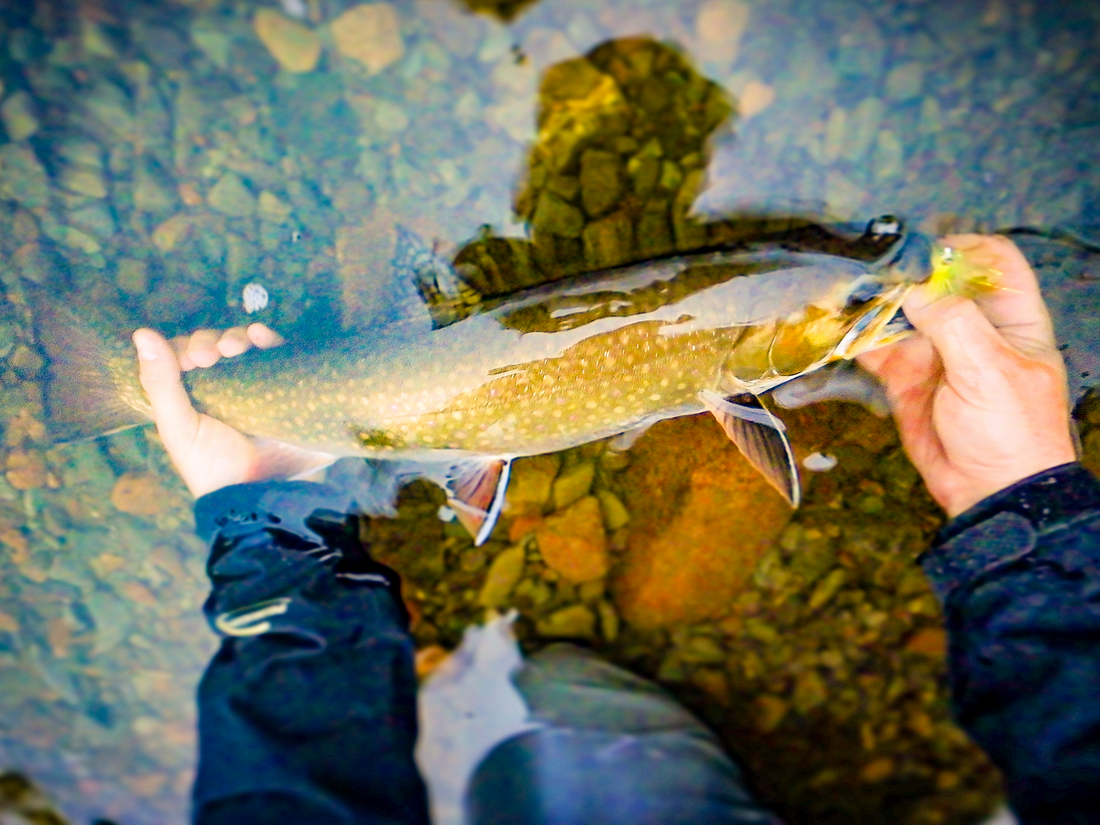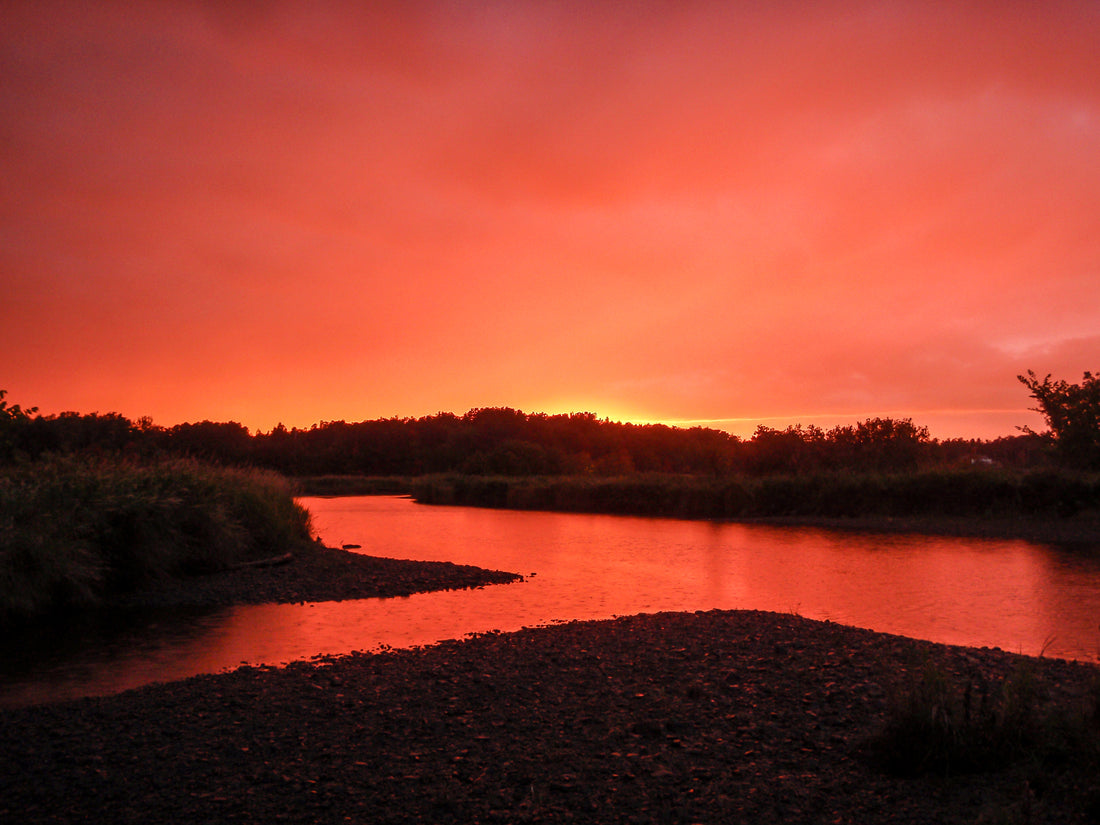“I call it ‘Pictogonia’” Matt Dort told me, on our way to the first pool. That’s an amalgam of ‘Pictou county’ and ‘Patagonia,’ an apt title for the trophy sea trout fishery on Nova Scotia’s northern shore. On the drive, we passed several rivers, and he exclaimed about each one: “The browns in there are insane,” and “you won’t believe the salmon in that river in the fall.”
Soon, I saw it for myself. On my third swing a spunky sea run trout took hard and bowed my seven weight. Later, in the river’s estuary, the water’s surface almost boiled with trout taking minnows. Matt netted and released one of the finest brook trout I’d ever seen — a fat and healthy specimen that darted away with a flick of its tail. While he was hardly disappointed, Matt told me the fishing had been even better the week before.
There are fifteen rivers that run into the Northumberland Strait in Pictou and Antigonish counties. They all host some combination of native brook trout and Atlantic salmon, as well as naturalized brown trout. It’s a world-class fishery, for two main reasons.
The first is smart management. In recent years, local river associations have successfully campaigned for reductions in legal retention, a move that’s already showing results. Of equal importance, the fishery depends on a rich marine environment in the strait. Trout and salmon that leave their natal rivers grow large on the ample baitfish in the strait and its estuaries.
For many, this resource has become a central part of their way of life. It’s not without economic importance either; the sportfishing industry in Nova Scotia is valued at $65 million (CDN) annually. Pictou and Antigonish are but two of the province’s eighteen counties, but with some of the best fishing, they contribute significantly to that economic sector.

Unfortunately, this vibrant and unique fishery in is grave danger. Here’s why. On Abercrombie Point, across from the town of Pictou, N.S., the Northern Pulp mill has been producing bleached Kraft pulp for 50 years. The mill generates up to 90 million litres of toxic effluent per day, which is currently ‘treated’ in a lagoon. The mill has been mandated by the provincial government to find a different way to deal with the wastewater. The proposed solution — and this isn’t a joke — is simply to pump the effluent directly into the Northumberland Strait, through an underwater pipe.
The strait is a sensitive ecological zone, and sustains several important fisheries in addition to the trout and salmon. Preliminary reports suggest that millions of litres of daily effluent could completely change the marine ecology, resulting in ‘eutrophication,’ or dead zones. Some of the chemicals in the wastewater have been known to travel several hundred miles in marine environments. Food sources on which trout depend could quickly vanish.
The government of Nova Scotia, which has long subsidized the mill, is trying to fast track the pipe, shielding it from the scrutiny it needs. While there are mounting calls for a full environmental assessment, the government seems intent on a rubber stamp process. First Nations, commercial lobster fishers, concerned citizens, and trout anglers are just a few of the groups that stand to lose by the pipe. Stakeholders have banded together, and we can only hope their collective determination will be enough to force a better solution for the effluent.
Back on the water, I spent a day getting to know someone whose devotion to the rivers and their fish runs deep. Matt has a passion for fishing, no doubt. But his real love is for beautiful, healthy ecosystems. And even more, it’s for the quality time he spends outdoors with his family. We all want to pass down healthy natural resources to our children, and Matt is no different. I couldn’t help but feel a little sad that the fishery he loves so much could be damaged forever.
Tom Cheney is an ecology and conservation writer living in Halifax, N.S. More of his work can be found at savingsalmon.com .
Matt Dort is a Fishpond Canadian Pro. He lives in New Glasgow, N.S., where he fishes with his family, and is active on many conservation issues.
Please consider adding your voice to the call for a full federal assessment of the proposed pipeline.
Take Action and make your voice heard.
https://www.friendsofthenorthumberlandstrait.ca/send-a-letter-in-one-minute



